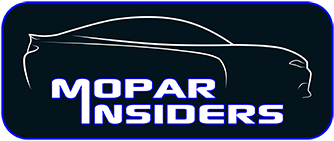Stellantis Invests In Lyten’s Breakthrough Lithium-Sulfur EV Battery Technology
Application To Help With Vehicle Lightweighting & Enhanced Vehicle-Sensing Solutions...

Stellantis N.V., in collaboration with Lyten, Inc., has announced a strategic investment through its corporate venture fund, Stellantis Ventures, to expedite the commercialization of Lyten’s groundbreaking 3D Graphene applications for the mobility industry. This partnership aims to enhance vehicle performance, improve customer experience, and contribute to decarbonizing the transportation sector.

Lyten’s tunable materials platform, leveraging the unique properties of 3D Graphene, has demonstrated the potential to significantly reduce greenhouse gas emissions and drive the transition toward sustainable mobility. The investment from Stellantis Ventures reflects their commitment to investing in early and later-stage startup companies developing innovative and sustainable technologies within the automotive and mobility sectors.
One of the critical innovations by Lyten is the development of LytCell, a lithium-sulfur electric vehicle (EV) battery. Unlike traditional lithium-ion batteries, LytCell batteries do not use nickel, cobalt, or manganese, resulting in an estimated 60% lower carbon footprint compared to current best-in-class batteries. Furthermore, the raw materials for lithium-sulfur batteries can be locally sourced and produced in North America or Europe, reducing supply chain disruptions and enhancing regional supply sovereignty.
Lyten’s 3D Graphene technology also enables the production of lightweight composites and novel onboard sensing solutions for the automotive industry. These composites offer improved payload capabilities while sensing technology provides innovative ways of gathering data without the need for chips, batteries, or wires. By incorporating these advancements, Lyten aims to contribute to decarbonizing the automotive sector while ensuring enhanced vehicle performance.

“Having recently visited Lyten together with our CTO Ned Curic and our head of Stellantis Ventures Adam Bazih, we walked away impressed by the potential of this technology to help drive clean, safe, and affordable mobility,” said Carlos Tavares, Stellantis CEO. “Lyten’s materials platform is a key investment for Stellantis Ventures, in line with our Dare Forward 2030 goal to accelerate [the] deployment of innovative, customer-centric technologies. Specifically, Lyten’s lithium-sulfur battery has the potential to be a key ingredient in enabling mass-market EV adoption globally, and their material technology is equally well positioned to help reduce vehicle weight, which is all necessary for our industry to achieve carbon net zero goals.”
As the global demand for EV manufacturing outpaces the supply of traditional lithium-ion battery materials, Lyten’s lithium-sulfur battery provides an alternative solution. By utilizing sustainable and domestically sourced materials, Lyten aims to provide a secure supply of performance-based products while reducing supply chain risks and environmental concerns associated with traditional battery materials.
Lyten’s collaboration with strategic investors from various industries demonstrates their commitment to decarbonizing other carbon-intensive sectors beyond transportation. By leveraging the potential of Lyten’s 3D Graphene materials, the company aims to develop sustainable solutions for industries such as aerospace, defense, and others, with further announcements expected in the near future.

Conclusion: The investment by Stellantis Ventures in Lyten underscores their commitment to innovative and sustainable technologies within the automotive and mobility sectors. Lyten’s 3D Graphene applications, including the LytCell lithium-sulfur EV battery, lightweight composites, and novel onboard sensing, offer promising solutions to decarbonize the transportation sector while improving vehicle performance and reducing the carbon footprint. This partnership represents a significant step towards achieving Stellantis’ Dare Forward 2030 goals, which include deep emission cuts and net-zero carbon targets.




